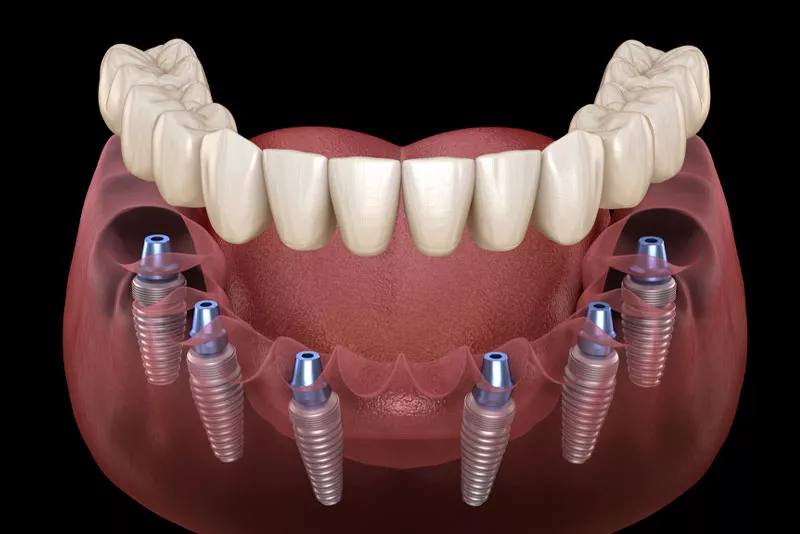
- By Admin
- 10-May-22
Dental Implants: A Comprehensive Guide to Permanent Tooth Replacement
If you've lost one or more teeth, you know how much it can affect your confidence and your ability to eat and speak. Fortunately, dental implants can provide a permanent solution to missing teeth. Here's a comprehensive guide to dental implants, including what they are, how they work, and what to expect during the implant process.
What are dental implants?
Dental implants are artificial tooth roots that are placed in your jawbone to support replacement teeth. They are made of titanium, a biocompatible material that fuses with your natural bone, creating a strong and stable foundation for your new teeth.
The dental implant process typically involves several steps:
- Consultation and planning: Your dentist will evaluate your oral health and determine if you're a good candidate for dental implants. They'll also create a treatment plan based on your individual needs.
- Implant placement: The implant is surgically placed in your jawbone. Over the next few months, the implant will fuse with your bone in a process called osseointegration, creating a stable foundation for your replacement tooth.
- Abutment placement: Once the implant has fused with your bone, an abutment is placed on top of the implant. This is the part that connects your replacement tooth to the implant.
- Replacement tooth placement: The final step is to place your replacement tooth, which is usually a dental crown. The crown is custom-made to match the color and shape of your natural teeth, ensuring a seamless and natural-looking smile.
Dental implants offer several benefits compared to other tooth replacement options:
- Permanent solution: Unlike dentures and bridges, which may need to be replaced or adjusted over time, dental implants are a permanent solution to missing teeth.
- Natural look and feel: Because dental implants are anchored in your jawbone, they look and feel like natural teeth. You can eat, speak, and smile with confidence, knowing that your replacement teeth are secure and stable.
- Improved oral health: Dental implants can help prevent bone loss and gum recession that can occur when teeth are missing. They also make it easier to clean between teeth, reducing the risk of cavities and gum disease.
- Versatility: Dental implants can be used to replace one or more missing teeth or even a full arch of teeth.
What should I expect during the implant process?
The implant process typically takes several months and may involve multiple visits to your dentist. It's important to follow your dentist's instructions for caring for your implant and maintaining good oral hygiene. Here are some general tips:
Eat soft foods for the first few days after surgery and avoid chewing on the implant site.
Brush and floss regularly, taking care to clean around the implant site
Attend regular follow-up appointments with your dentist to monitor your progress and ensure the implant is healing properly.
In conclusion, dental implants offer a permanent, natural-looking solution to missing teeth. If you're considering dental implants, talk to your dentist about whether they're right for you and what to expect during the implant process. With proper care and maintenance, dental implants can provide a lifetime of benefits and a confident, healthy smile.
